Related Research Articles

Deusdedit was a medieval Archbishop of Canterbury, the first native-born holder of the see of Canterbury. By birth an Anglo-Saxon, he became archbishop in 655 and held the office for more than nine years until his death, probably from plague. Deusdedit's successor as archbishop was one of his priests at Canterbury. There is some controversy over the exact date of Deusdedit's death, owing to discrepancies in the medieval written work that records his life. Little is known about his episcopate, but he was considered to be a saint after his demise. A saint's life was written after his relics were moved from their original burial place in 1091.
The Elrington and Bosworth Professorship of Anglo-Saxon is the senior professorship in Anglo-Saxon at the University of Cambridge.
Jane Barbara Stevenson is a British historian, literary scholar, and author.
Simon Douglas Keynes, is a British author who is Elrington and Bosworth Professor of Anglo-Saxon emeritus in the Department of Anglo-Saxon, Norse, and Celtic at Cambridge University, and a Fellow of Trinity College.
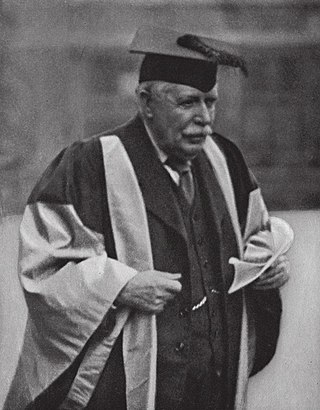
Hector Munro Chadwick was an English philologist. Chadwick was the Elrington and Bosworth Professor of Anglo-Saxon and the founder and head of the Department for Anglo-Saxon and Kindred Studies at the University of Cambridge. Chadwick was well known for his encouragement of interdisciplinary research on Celts and Germanic peoples, and for his theories on the Heroic Age in the history of human societies. Chadwick was a tutor of many notable students and the author of numerous influential works in his fields of study. Much of his research and teaching was conducted in cooperation with his wife, former student and fellow Cambridge scholar Nora Kershaw.
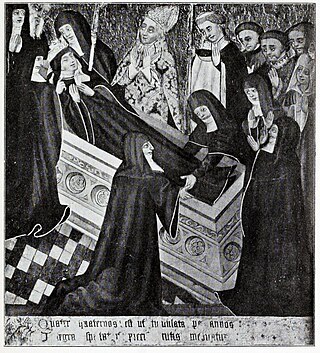
Seaxburh, also Saint Sexburga of Ely, was an Anglo-Saxon queen and abbess, venerated a saint of the Christian Church. She was married to King Eorcenberht of Kent.
Saint Eormenhild is a 7th-century Anglo-Saxon saint venerated in the Eastern Orthodox and Roman Catholic churches.
David Norman Dumville was a British medievalist and Celtic scholar.

Dorothy Whitelock, was an English historian. From 1957 to 1969, she was the Elrington and Bosworth Professor of Anglo-Saxon at the University of Cambridge. Her best-known work is English Historical Documents, vol. I: c. 500-1042, which she edited. It is a compilation of translated sources, with introductions.
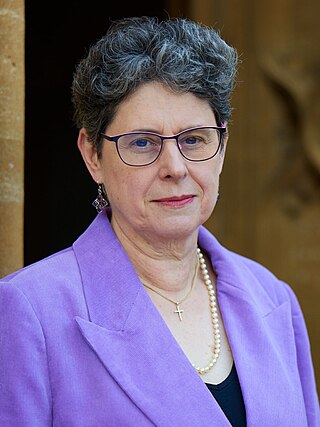
Sarah Rosamund Irvine Foot, is an English Anglican priest and early medieval historian. She has been Regius Professor of Ecclesiastical History at the University of Oxford since 2007, and Dean of Christ Church, Oxford since 2023.
Goscelin of Saint-Bertin was a Benedictine hagiographical writer. He was a Fleming or Brabantian by birth and became a monk of St Bertin's at Saint-Omer before travelling to England to take up a position in the household of Herman, Bishop of Ramsbury in Wiltshire (1058–78). During his time in England, he stayed at many monasteries and wherever he went collected materials for his numerous hagiographies of English saints.
Peter Alan Martin Clemoes was a British historian.
Wulfsige III was a medieval Bishop of Sherborne and is considered a saint.
Richard Sharpe,, Hon. was a British historian and academic, who was Professor of Diplomatic at the University of Oxford and a fellow of Wadham College, Oxford. His broad interests were the history of medieval England, Ireland, Scotland and Wales. He had a special concern with first-hand work on the primary sources of medieval history, including the practices of palaeography, diplomatic and the editorial process, as well as the historical and legal contexts of medieval documents. He was the general editor of the Corpus of British Medieval Library Catalogues, and editor of a forthcoming edition of the charters of King Henry I of England.
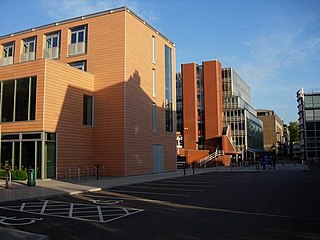
The Department of Anglo-Saxon, Norse and Celtic is one of the constituent departments of the University of Cambridge, and focuses on the history, material culture, languages and literatures of the various peoples who inhabited Britain, Ireland and the extended Scandinavian world in the early Middle Ages. It is based on the second floor of the Faculty of English at 9 West Road. In Cambridge University jargon, its students are called ASNaCs.
Bruce Dickins, FBA, a graduate of Magdalene College, Cambridge, was Professor of English Language at the University of Leeds from 1931 to 1946, teaching medieval English and Old Norse. He sat on the executive committee of the Yorkshire Society for Celtic Studies from 1931 to at least 1943, serving as president in 1936-37, and editing several numbers of its journal, Yorkshire Celtic Studies.
Michael Lapidge, FBA is a scholar in the field of Medieval Latin literature, particularly that composed in Anglo-Saxon England during the period 600–1100 AD; he is an emeritus Fellow of Clare College, Cambridge, a Fellow of the British Academy, and winner of the 2009 Sir Israel Gollancz Prize.
Florence Elizabeth Harmer FBA was an English historian, specializing in the Anglo-Saxon period. Translating from Old English and Latin, she edited a number of primary sources for early English history, and her Anglo-Saxon Writs (1952) remains a standard text.
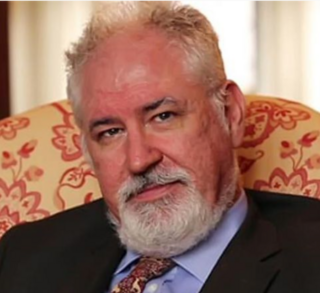
Andrew Philip McDowell Orchard, is a British academic of Old English, Norse and Celtic literature. He is Rawlinson and Bosworth Professor of Anglo-Saxon at the University of Oxford and a fellow of Pembroke College, Oxford. He was previously Provost of Trinity College, Toronto, from 2007 to 2013. In 2021, claims of sexual harassment and assault by Orchard were publicized, which were alleged at universities where he has worked, including the University of Cambridge and the University of Toronto.

The Faculty of English is a constituent part of the University of Cambridge. It was founded in 1914 as a Tripos within the Faculty of Medieval and Modern Languages. It could be studied only as a 'Part I' of a degree course, alongside a 'Part II' either in medieval languages or from another Tripos. In 1926, the course became a distinct Faculty.
References
- 1 2 3 "Love, Prof. Rosalind Claire, (born 29 June 1966), Elrington and Bosworth Professor of Anglo-Saxon, University of Cambridge, since 2019; Fellow of Robinson College, Cambridge, since 1993". Who's Who 2021 . Oxford University Press. 1 December 2020. Retrieved 26 February 2021.
- ↑ "Department of Anglo-Saxon, Norse and Celtic". www.asnc.cam.ac.uk. Retrieved 3 February 2020.
- 1 2 3 4 5 "Love, Prof. Rosalind Claire, (born 29 June 1966), Elrington and Bosworth Professor of Anglo-Saxon, University of Cambridge, since 2019; Fellow of Robinson College, Cambridge, since 1993". Who's Who 2023 . Oxford University Press. 1 December 2022.
- ↑ Love, Rosalind Claire (1993). "The texts, transmission and circulation of some eleventh-century Anglo-Latin saints' lives". E-Thesis Online Service. The British Library Board. Retrieved 23 February 2023.
- ↑ "Professor Rosalind C Love". Robinson College. 27 November 2015. Retrieved 23 February 2023.
- ↑ "Dr Rosalind Love". Anglo-Saxon, Norse & Celtic. University of Cambridge. Archived from the original on 24 September 2015. Retrieved 23 February 2023.
- ↑ "Elrington and Bosworth Professorship of Anglo-Saxon". Anglo-Saxon, Norse & Celtic. University of Cambridge. Retrieved 23 February 2023.
- ↑ "The British Academy welcomes 86 new Fellows in 2024". British Academy. Retrieved 20 July 2024.
- ↑ "Richard Rawlinson Center Series for Anglo-Saxon Studies".
- ↑ "Oxford Medieval Texts - Oxford University Press". global.oup.com. Retrieved 3 February 2020.
- ↑ "People". Henry Bradshaw Society. 9 July 2016. Retrieved 3 February 2020.
- ↑ "The British Academy welcomes 86 new Fellows in 2024". 18 July 2024.
- ↑ "Canon Nick Moir". St Andrew's Church, Chesterton. Retrieved 26 February 2021.